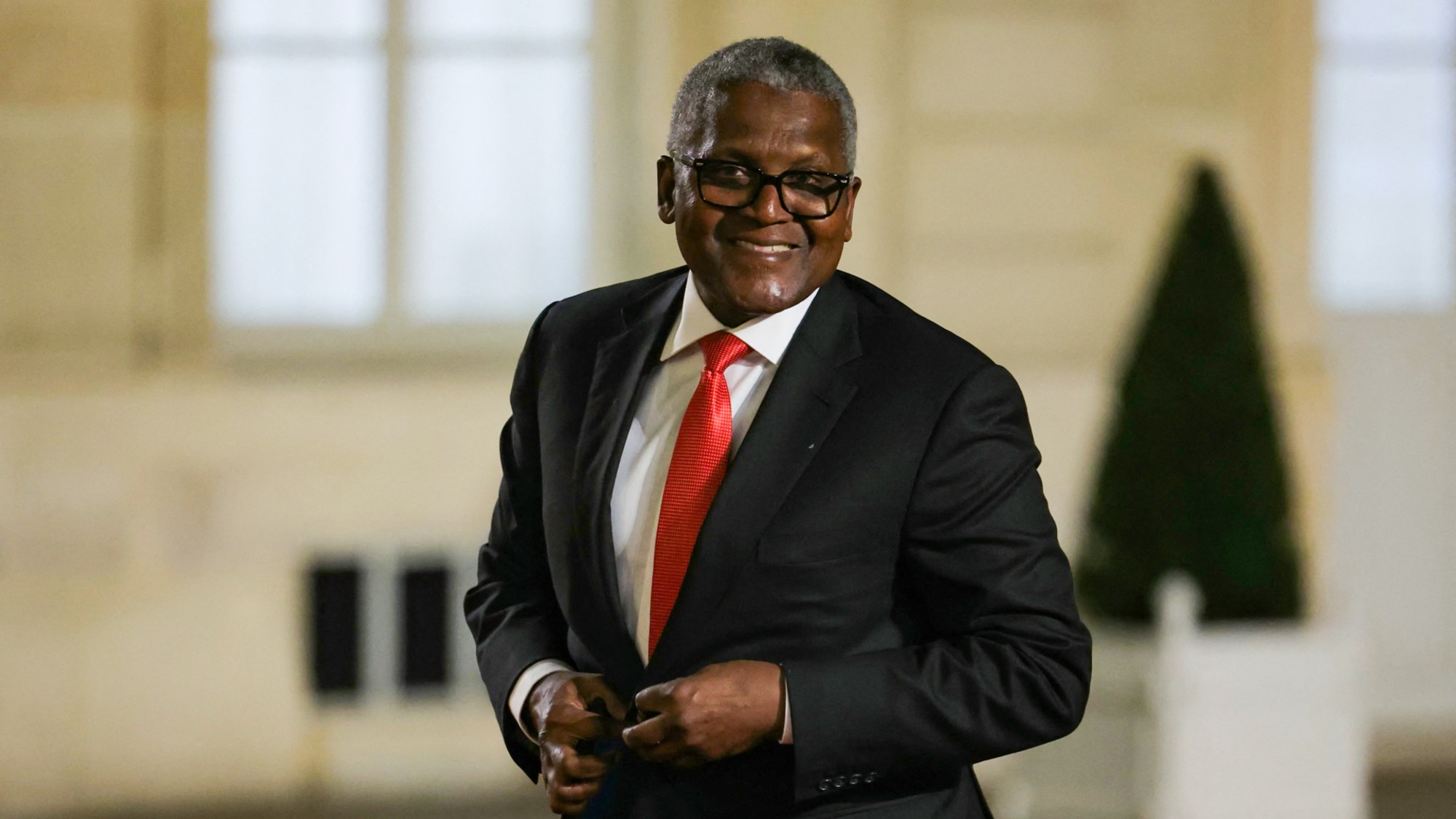'Crony capitalism is a sharp break from free market ideals'
Opinion, comment and editorials of the day


A free daily email with the biggest news stories of the day – and the best features from TheWeek.com
You are now subscribed
Your newsletter sign-up was successful
'Africa's billionaire boom masks a crisis for the many'
Tafi Mhaka at Al Jazeera
The "top 5% of Africans now control nearly $4 trillion in wealth," says Tafi Mhaka. No "two nations better illustrate Africa's stark wealth disparity and oligarchic dominance than Nigeria and South Africa," and "no business leader exemplifies the rise of crony capitalism on the continent more than Aliko Dangote," the wealthiest African. His "vast wealth should represent the pinnacle of success in a thriving African economy," but "instead, he exemplifies Africa's most prominent and wealthiest oligarch."
The Week
Escape your echo chamber. Get the facts behind the news, plus analysis from multiple perspectives.

Sign up for The Week's Free Newsletters
From our morning news briefing to a weekly Good News Newsletter, get the best of The Week delivered directly to your inbox.
From our morning news briefing to a weekly Good News Newsletter, get the best of The Week delivered directly to your inbox.
'Why "South Park" did an about-face on mocking Trump'
Paula Mejía at The Atlantic
"South Park" returned to a "political moment that some satirists have found harder to work with," says Paula Mejía. In the "past, President Donald Trump's second term would have been an obvious target for 'South Park.'" The show's "solution to the quandary of Trump-era satire, it seems, is to use the president as something of a Trojan horse for mocking another subject entirely — and a way to dramatically up the stakes while doing so."
'The Hippocratic underground'
Eric Reinhart at The Nation
A free daily email with the biggest news stories of the day – and the best features from TheWeek.com
Participation in the "Hippocratic underground consists of everyday acts of bureaucratic subversion and ethical disobedience in which professional risk is negligible," says Eric Reinhart. For "U.S. healthcare workers laboring under a system designed to maximize profits at the cost of tens of thousands of preventable deaths each year, many of us already enact its principles and tactics." A "physician or nurse recognizes that the ethical responsibility to care for others exceeds the bounds dictated by unjust systems."
'Turbulence ahead: How conflict zones affect the airline industry'
Shaza Arif at The Hill
The "recent Iran-Israel conflict has not only escalated regional tensions but also disrupted global aviation dynamics," says Shaza Arif. As "drones and missiles dominated the skies, the resulting airspace closures and rerouting exposed the vulnerability of commercial airlines to modern conflict zones." It is "timely to examine how such military escalations ripple into civilian sectors, particularly the airline industry, which now faces heightened operational and financial uncertainty." Commercial airlines are "notably vulnerable in conflict-prone regions."
Justin Klawans has worked as a staff writer at The Week since 2022. He began his career covering local news before joining Newsweek as a breaking news reporter, where he wrote about politics, national and global affairs, business, crime, sports, film, television and other news. Justin has also freelanced for outlets including Collider and United Press International.
-
 The Gallivant: style and charm steps from Camber Sands
The Gallivant: style and charm steps from Camber SandsThe Week Recommends Nestled behind the dunes, this luxury hotel is a great place to hunker down and get cosy
-
 The President’s Cake: ‘sweet tragedy’ about a little girl on a baking mission in Iraq
The President’s Cake: ‘sweet tragedy’ about a little girl on a baking mission in IraqThe Week Recommends Charming debut from Hasan Hadi is filled with ‘vivid characters’
-
 Kia EV4: a ‘terrifically comfy’ electric car
Kia EV4: a ‘terrifically comfy’ electric carThe Week Recommends The family-friendly vehicle has ‘plush seats’ and generous space
-
 ‘Poor time management isn’t just an inconvenience’
‘Poor time management isn’t just an inconvenience’Instant Opinion Opinion, comment and editorials of the day
-
 ‘The forces he united still shape the Democratic Party’
‘The forces he united still shape the Democratic Party’Instant Opinion Opinion, comment and editorials of the day
-
 ‘Those rights don’t exist to protect criminals’
‘Those rights don’t exist to protect criminals’Instant Opinion Opinion, comment and editorials of the day
-
 ‘This is something that happens all too often’
‘This is something that happens all too often’Instant Opinion Opinion, comment and editorials of the day
-
 El Paso airspace closure tied to FAA-Pentagon standoff
El Paso airspace closure tied to FAA-Pentagon standoffSpeed Read The closure in the Texas border city stemmed from disagreements between the Federal Aviation Administration and Pentagon officials over drone-related tests
-
 ‘The mark’s significance is psychological, if that’
‘The mark’s significance is psychological, if that’Instant Opinion Opinion, comment and editorials of the day
-
 ‘Hong Kong is stable because it has been muzzled’
‘Hong Kong is stable because it has been muzzled’Instant Opinion Opinion, comment and editorials of the day
-
 ‘Bad Bunny’s music feels inclusive and exclusive at the same time’
‘Bad Bunny’s music feels inclusive and exclusive at the same time’Instant Opinion Opinion, comment and editorials of the day
